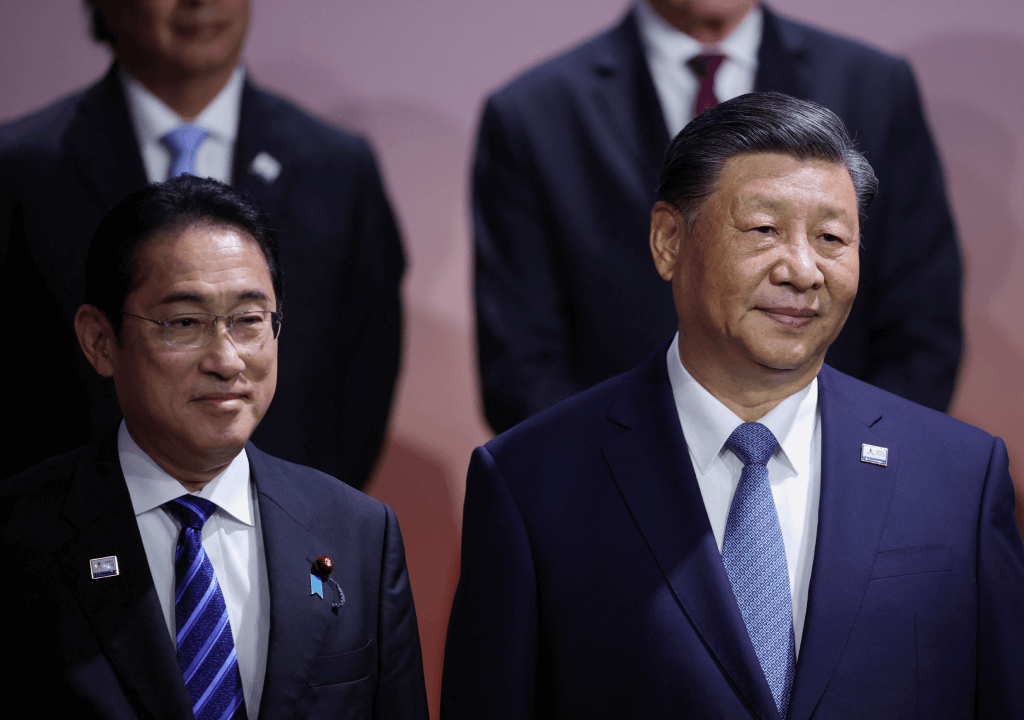China and Japan, two powerhouses in Asia, share a long history of conflicts and conquests, a dynamic that continues into the modern era. Currently, their relationship is considered to be in one of its worst phases. As the world’s second and third largest economies, both countries are positioning themselves for potential conflict, seeking triggers that could escalate tensions. Their actions significantly influence the political landscape of the Asia-Pacific region and could potentially lead to a global conflict, with the United States likely to support Japan and Russia aligning with China. Numerous other countries could also join either side.
Both China and Japan have their own reasons for accusing each other. The Chinese government claims that relations with Japan have been strained by Japan’s failure to fully acknowledge its wartime crimes to China’s satisfaction. On the other hand, the Japanese government attributes the tension to the expansion and assertive actions of the People’s Liberation Army, as well as China’s revisionist statements. The two countries also face serious territorial disputes and frequently provoke each other, as evidenced by a recent incident where China allegedly attempted to breach Japanese airspace.
Despite the tense situation over the South China Sea, efforts are being made at diplomatic level. Recently, veteran Chinese diplomat Liu Jianchao urged visiting Japanese lawmakers to adopt a long-term perspective on bilateral relations and manage their differences constructively. During a meeting with a cross-party delegation from the Japan-China Friendship Parliamentarians Union – a platform that fosters dialogue and collaboration between lawmakers from both countries – Liu highlighted that relations were at a critical juncture. He expressed hope that both sides would approach Sino-Japanese relations with a broader and long-term view, enhance strategic communication, collaborate across various fields, and handle their differences constructively. Liu also called for increased dialogue and exchange visits from all Japanese political factions to China to strengthen strategic communication and mutual understanding.
Nikai, a prominent figure in the Japanese parliament, stated that the visit aimed to improve communication between the two countries. He emphasized the goal of fostering deeper dialogue with China, strengthening communication between relevant departments of both nations, and creating favorable conditions for resolving differences and enhancing cooperation in politics, economics, culture, and tourism.
Liu, head of the International Department for China’s ruling Communist Party, is leading the discussions with a group from Japan headed by Toshihiro Nikai, a prominent member of the House of Representatives and a key figure in the ruling Liberal Democratic Party (LDP). The group is on a three-day visit and met Zhao Leji, the head of China’s top legislative body, on Wednesday morning. During the meeting, Nikai expressed regret over the recent intrusion of Chinese military aircraft into Japanese airspace, as reported by Jiji Press. Key topics of discussion are expected to include China’s ban on Japanese seafood imports, the reinstatement of pre-pandemic visa-free entry for short-term visits by Japanese nationals, and the detention of Japanese nationals in China on espionage charges. Yoshimasa Hayashi, Japan’s chief government spokesman, expressed hope that this visit—the first by the union in five years – would further strengthen multifaceted exchanges and communication between Beijing and Tokyo.
In May, Liu led a delegation to Japan and consented to reinitiate regular discussions between the ruling parties, marking the first such meetings in six years. In July, Hiroshi Moriyama, chairman of the LDP’s decision-making general council, visited China and met with Chinese Foreign Minister Wang Yi, who called for enhanced communication and cooperation. Additionally, Chinese Foreign Vice Minister Ma Zhaoxu resumed the China-Japan strategic dialogue with his Japanese counterpart in Tokyo after a four-year hiatus and held a candid and in-depth discussion with Japanese Foreign Minister Yoko Kamikawa. Despite these efforts, the situation does not seem to have significantly improved, and the results are still pending.








